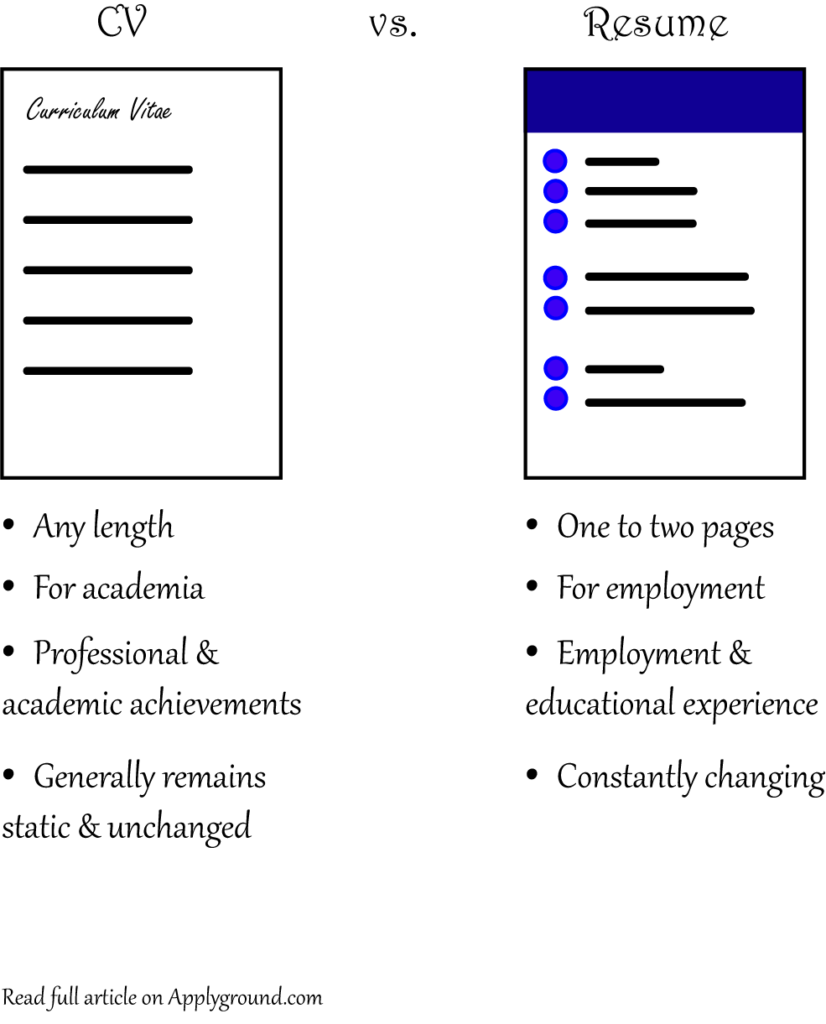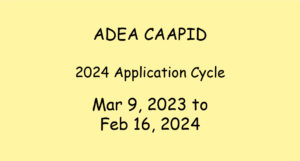This is a very common question among students and job applicants. Is a CV different from a resume? Is resume just a fancy word for CV? Which one is better than the other? Which one do you need?
In this article, we go over the main differences between these two documents.
CV vs. Resume
The most important difference is that these two documents have specific uses. Applicants use resumes to apply for jobs, especially non-academic positions. However, a CV is used for academic purposes and usually for admission into dental, medical, and/or graduate programs.
A resume is typically limited to one page, sometimes two, in order to briefly outline an individual’s education, job experiences, and skills. Employers often have many resumes to review when selecting applicants for interviews, so they prefer resumes to be concise. Therefore, professionals usually organize their resume with short bullet points and avoid using full sentences. Contrastingly, CVs have no length limit, as they can be as long as a person’s experience requires them to be. The information contained is often plentiful since it highlights a student’s academic achievements and professional career. Within these topics, one’s education, books and other publications, awards, research and teaching experience, and much more is provided.
When it comes to the order of educational and employment experiences, there are guidelines for a CV. For instance, educational experience should come before work experience. However, this can differ for a resume, since the arrangement is not set in stone. Another recommendation is that all accomplishments on a CV be listed in reverse-chronological order, meaning the most recent achievement should be first. Lastly, resumes are constantly changing over time. As a person’s employment, skill, and educational experiences advance with time, this information requires continuous updating. However, a CV will usually remain as is once the applicant makes it. The reason for this is because it captures previous academic and professional accomplishments, which remain constant. Major changes to CVs are generally uncommon.
Fun Fact
Importance of CV to prospective students
During the application process, the school’s admissions team will often use the terms “resume” and “CV” interchangeably when they are, in fact different. One of our services at ApplyGround is to solve this dilemma by aiding in your understanding of these documents and helping with the completion of them. Most dental, medical, and graduate programs will request CVs from students when applying, and one of our most important and requested tasks is to guide students through this process. We can help you at any point in your CV-creation process, whether it is beginning from scratch or revising an existing document.
Conclusion
Overall, CVs display much more than a resume and offer a comprehensive overview of a student’s accomplishments in academia with detail. You may need both a CV and a resume depending on what you are applying for. Below is a table outlining some of the important differences between a CV and a resume.



